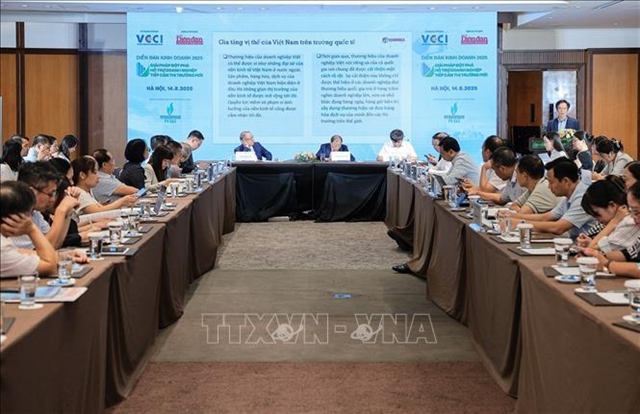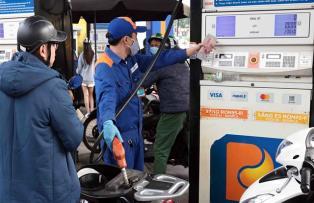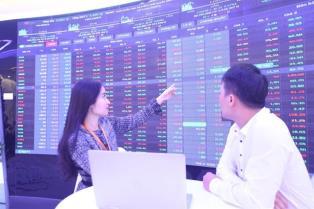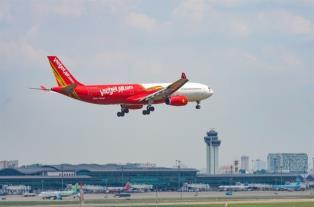Experts underlined the urgency of finding new markets amid tough competition and stricter standards on quality, environment, labour and social responsibility.

HÀ NỘI — With Việt Nam’s economy facing rising global headwinds, a high-level forum in Hà Nội yesterday gathered key voices from ministries, trade bodies and the business community to chart breakthrough solutions for expanding into new markets.
Hosted by Business Forum magazine and the Việt Nam Chamber of Commerce and Industry (VCCI), the event—Breakthrough Solutions to Help Enterprises Access New Markets—focused on strategies to unlock the potential of free trade agreements (FTAs), overcome trade barriers and strengthen supply chains amid tightening global standards.
Opening the forum, VCCI Vice Chairman Hoàng Quang Phòng highlighted Việt Nam’s strong economic momentum, with the full-year GDP growth target set between 8.3 and 8.5 per cent. In the first seven months of 2025, registered foreign direct investment (FDI) reached nearly US$24.1 billion, up 27.3 per cent year-on-year.
Retail sales rose by 9.3 per cent and July’s exports set a new monthly record of $42.26 billion, pushing the total to $262.44 billion—an increase of 14.8 per cent. More than 174,000 businesses entered or re-entered the market during this period, contributing over VNĐ3.3 quadrillion in registered capital, along with 536,200 newly established household businesses.
Despite these gains, Phòng cautioned that the path to achieving growth remains complex. Global geopolitical tensions are accelerating shifts in supply chains and disrupting traditional trade routes. As a highly open economy, Việt Nam is particularly vulnerable.
Recent US tariffs—such as the 20 per cent levy imposed in early August on certain Vietnamese exports—have added further pressure. Meanwhile, major markets are ramping up non-tariff regulations relating to Environmental, Social and Governance (ESG) standards. This compels domestic enterprises to invest more in green technologies, digital transformation, transparent sourcing and raising local content levels.
In response, diversifying export markets is being positioned as a strategic imperative. With 17 FTAs in force—covering more than 60 countries and territories—Việt Nam is well-placed to reduce its dependence on a handful of large markets and tap into new demand globally.
Director of the Institute of Strategic and Policy Research for Industry and Trade Dr Nguyễn Văn Hội compared agreements like the CPTPP and EVFTA to “expressways” for Vietnamese products, reducing costs and improving market access. But he also pointed to structural bottlenecks including over-reliance on FDI, a narrow export base, budget dependency on trade taxes, shallow domestic financial services and gaps in state management capacity.
He proposed several policy actions, such as deepening value-added manufacturing, investing in innovation, improving traceability for agricultural exports, expanding into new markets sustainably and enhancing logistics. On the business front, he called for stronger roles for industry associations in resolving disputes, building export value chains led by private firms, navigating trade barriers and fostering better links between domestic and foreign enterprises.
Chairman of the Việt Nam Association of Small and Medium Enterprises Nguyễn Văn Thân echoed the call for swift market diversification. With tougher global competition and stricter standards on labour, environmental impact and social accountability, he urged firms to raise specific challenges and offer pragmatic solutions.
Vice chairman of EuroCham Nguyễn Hải Minh, reaffirmed Việt Nam’s appeal to EU investors, crediting the EVFTA and ongoing reforms. While noting progress under the government’s 'four-pillar' strategy, he flagged infrastructure, human resources and regulatory inefficiencies as areas for further improvement.
Minh also pointed to growing EU interest in logistics and high-tech hubs. He said an expanded pilot free trade zone model could offer a significant boost if implemented effectively and expected increased bilateral engagement, with more European delegations set to visit Việt Nam to explore opportunities. — VNS





